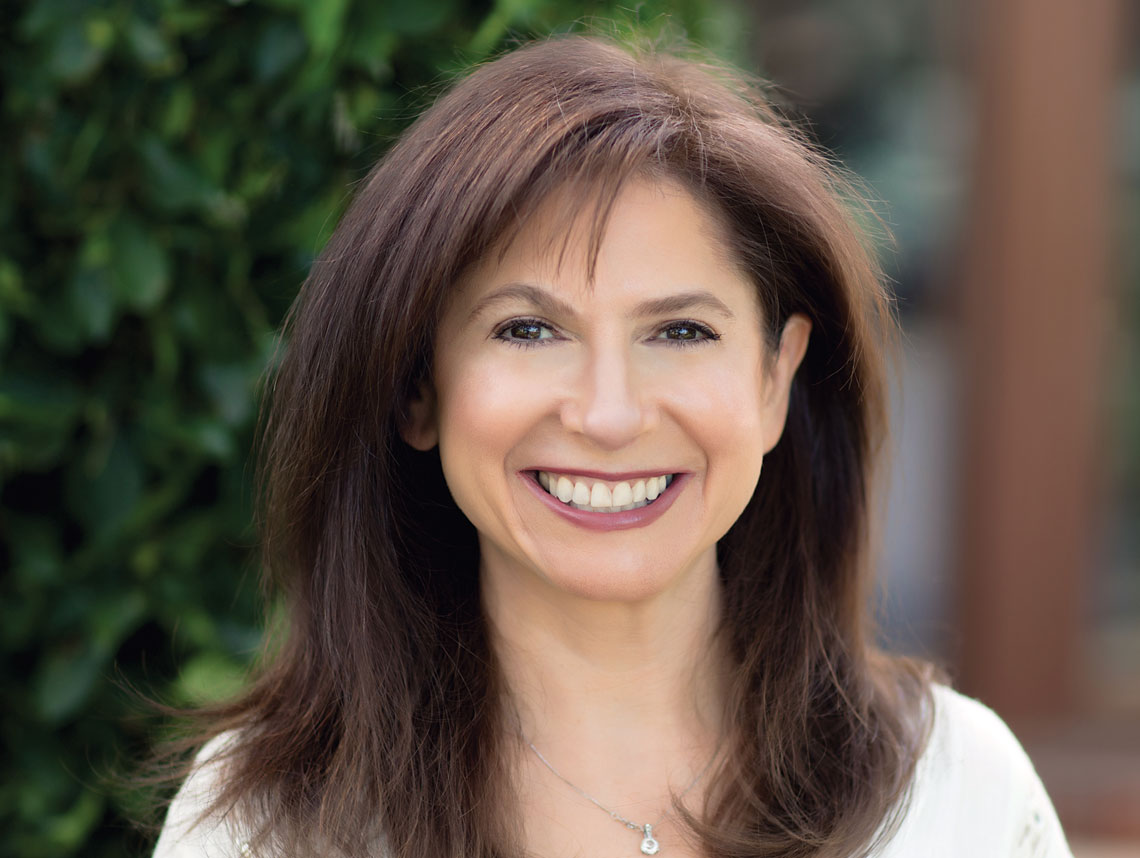 Rabbi Naomi Levy. Photo by Jay Lawrence Goldman
Rabbi Naomi Levy. Photo by Jay Lawrence Goldman Rabbi Naomi Levy spoke with Jonathan Kirsch, the book editor of the Journal, about her book “Einstein and the Rabbi.”
Jewish Journal: The title of your book reminds us that Albert Einstein — perhaps the most famous Jewish figure in the modern era — was a scientist who also had a lot to say about God. You share with your readers a letter in which Einstein says that achieving a sense of oneness with the universe is “the one issue of true religion.” What do you understand Einstein to mean by “true religion”?
Naomi Levy: My take — or my midrash, if you will — is that I am reading his words as a reference to a spirituality that encompass all faiths, and all traditions, and all people. “Religion” is our sense of common purpose and common humanity, our ability to rise above all of the differences that we see, a recognition that, really, oneness is all there is. My prayer is that it would be a universal faith that we can all sign on to while keeping our individual traditions and faiths. And I would love to be a rabbi in that faith.
JJ: You write about what you describe as your “homemade” bat mitzvah, which was also your first encounter with the limited role that traditional Judaism affords to women, young and old. You’ve come a long way since then, and yet the Jewish world — and especially the rabbinate in Israel — can still be an unwelcoming place for a woman rabbi. Do you sometimes feel that Judaism itself is moving in the wrong direction?
NL: Obviously, since my bat mitzvah, many aspects of Judaism are moving in very hopeful directions. In extreme Orthodoxy, they are not. I find it very saddening that American Jewry has more freedom of expression and more freedom to experience different voices of Jewish insight than Jews in Israel do.
JJ: One of the most heartbreaking and yet formative experiences that you describe in your book is the murder of your father by an armed robber when you were a teenager. It seems like America is descending ever deeper into gun violence. Yet you also write: “Yes, I do believe great things are coming, sweet blessings.” What brings you to that belief?
I realized that there may be a lot going wrong in our nation and our world, but there are wonderful people everywhere with good hearts and open arms.
NL: On the day of the solar eclipse, I hopped on my bicycle and rode to the beach. We’d gone to a store to get the special glasses you need, but we didn’t find them, and I thought I wouldn’t see the eclipse after all. But I came upon this lovely group of people who could not have been more welcoming or more loving. We shared stories and emails and cellphones. When I walked away from that experience, I realized that there may be a lot going wrong in our nation and our world, but there are wonderful people everywhere with good hearts and open arms. I really do believe in humanity, I do. We can’t afford to give into despair. We have to be warriors for love, and warriors for hope, and warriors for peace.
JJ: You write with both wit and courage about a dire health crisis of your own and a moment of exaltation that came in answer to prayer. That scene in the hospital is so remarkable that you hasten to explain to your readers: “I am not psychotic … at least I don’t think I am.” Do you find it ironic that we live at a time when a rabbi who personally experiences divine intervention needs to assure her readers that she is not crazy?
NL: You know what? I think if I were Christian, I wouldn’t have to explain it as much, but Jews are more skeptical of things like a calling. Even though the whole concept of a calling is a Jewish concept, and our Christian brothers and sisters got it from us, when would you hear a rabbi saying, “I got the call”? But I did.
JJ: You write, “It’s not uncommon for me to spend the morning offering a blessing at the bedside of someone who is dying, and to then rejoice at a wedding or a baby naming that same afternoon.” But I wonder if it takes a toll on you, physically and spiritually, to be the one we go to at moments of the greatest joy as well as the greatest pain and sorrow.
NL: The toll would be so much greater if I didn’t have love at home. I feel very blessed and loved. And there is a way in which making the shift from death to life or from life to death gives me a perspective that I wouldn’t have it any other way. Are there times when I feel like I just can’t do this? Yes, there are. Then I rise to the occasion and do it, and those are some of the most precious, powerful and holy moments in my whole life.























 More news and opinions than at a Shabbat dinner, right in your inbox.
More news and opinions than at a Shabbat dinner, right in your inbox.